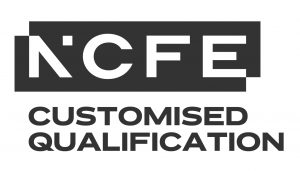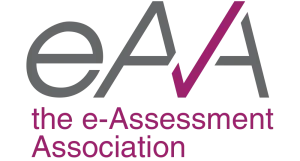
This qualification develops the more experienced members of the practice team, especially those who have some supervisory or management duties. (Suitable for people working in Scotland)
Online course
Using our online learning portal
Course duration
8 months
Recommended study
3-4 hours a week
Study requirements
No existing qualification required
Success rate
95% of our learners pass first time
First class support
Tutor support throughout
Assessment
Online assessment in the workplace
Qualification
Certificate in Optical Care
Cost
April 2026
Early bird rate (book by 28th Feb 2026) £600
Price after 28th Feb 2026 £800
Applications for April 2026 will close on 27th March 2026
SEPTEMBER 2026
Price details will go live in 2026
Applications for September 2026 will close 28th August 2026
This course is designed to ensure you obtain a sound knowledge of optics developing the necessary skills to understand the basics of the subject. The course is ideally suited to those who may have been working in practice for several years. Whether you are on the first steps of a career, expanding your skills in your current role or using the course as a stepping stone to higher, this Level 7 course teaches you the fundamental essential skills in a flexible and supportive way.
The Level 7 Certificate in Supporting Optical Care is a short qualification to help you develop essential skills. Once completed, you will have developed an understanding of basic optical practices and techniques.
The course begins in April each year and following a timetable of study will be completed in November. You should allow 3-4 hours for study per week. Applications open in December and can be accepted until the start of the course in April.
In order to successfully achieve the Level 7 Certificate in Supporting Optical Care, you will need to complete all four units.
The course is delivered online using our learning platform which breaks the units down into bite-sized chunks to learn each week with activities to complete to check your understanding. A full-colour course manual is also provided to enhance the online material. At the end of each unit, there is an assignment to complete which is marked by your tutor and is an important part of the course as it prepares you for the examination. You can find out more about the examination for this course below.
Units
This unit reviews the range of legislation that governs optical businesses; from consumer rights to the Opticians Act and GDPR. The importance of Health and Safety is also covered, along with, COSHH, risk assessment, and waste disposal. Special emphasis is placed on the supply of contact lenses. This is an important unit for anyone who is in a supervisory capacity or management position.
Your learning goals:
- Understand the legal requirements in optical practice
- Understand the importance of health and safety in the workplace
- Understand the legal requirements that relate to the supply of contact lenses
Studying this unit expands the learner’s knowledge about more advanced areas of dispensing, such as occupational lenses and safety eyewear. This unit also looks at the range of frame, lens, and facial measurements required to order a pair of spectacles. There is also time spent reviewing the NHS voucher system for the supply of spectacles.
Your learning goals:
- Understand the considerations on lens selection
- Understand the use and recommendation of occupational lenses
- Understand the range measurements required to order a pair of spectacles
- Understand the fitting of spectacles, their adjustment and aftercare
- Understand the NHS provision for spectacles in Scotland
- Understand safety lenses and eyewear
There are 2 million people in the UK living with sight loss, making this unit an important aspect of modern practice. The unit starts by reviewing the terminology used and moves on to reviewing the low vision assessment journey, with an emphasis on the range of support available. The unit then covers the range of low vision aids available and the importance of good lighting. Studying this unit will help you to empathise and understand people’s needs.
Your learning goals:
- Understand what we mean by low vision
- Understand the low vision assessment process
- Understand the range of low vision aids available
- Understand the common eye conditions
- Understand the importance of light for the visually impaired
A more advanced unit than the level 5 unit on optical screening; this unit considers a greater understanding of procedures such as visual field testing, auto-refraction, tonometry, fundus photography, and OCT. The unit finishes with how to deal with triaging ocular emergencies, which will boost the confidence of optical support staff.
Your learning goals:
- Understand optical prescriptions
- Understand the results of visual field screening
- Understand different methods of measuring intraocular pressure
- Understand how to improve imaging of the fundus
- Understand optical emergencies and triaging
Examinations
In order to achieve a qualification for this course you will need to pass the examinations.
All of our examinations are carried out online in your workplace. You will need to take an examination for each unit you have studied and these will be done once you have completed the coursework for each unit. The details and dates of your examination will be communicated to you on our online portal and also by email. Each examination will take 30 minutes to complete and will consist of several short answer questions. The pass mark for each unit is 50% and you can resit any units you do not pass at the end of your course.
Once you have achieved a pass in all your units you will receive a certificate from NCFE.
You can find out more about our examinations, find application forms, and our policy documents here.


